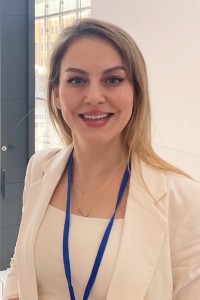
Scientist
Wisconsin Energy Institute
Canan Sener’s research is dedicated to advancing the sustainable conversion of lignocellulosic biomass into renewable fuels and value-added chemicals. By integrating catalytic, enzymatic, and microbial processes, Dr. Sener aims to streamline biomass conversion pathways, enhancing both efficiency and economic viability.
With a Ph.D. from Middle East Technical University and postdoctoral experience in Professor James Dumesic’s group, Dr. Sener has developed expertise in designing heterogeneous catalysts for biomass upgrading. Her interdisciplinary collaborations with microbial scientists and techno-economic analysts have been pivotal in optimizing biorefinery systems. Dr. Canan Sener’s research is focused on advancing catalytic and integrated processes for converting lignocellulosic biomass into renewable fuels and specialty chemicals, with a strong emphasis on lignin valorization and sustainable aviation fuel (SAF) production.
Her expertise in homogeneous, heterogeneous, and single-atom catalysis enables the development of innovative pathways to transform both the sugar and lignin fractions of biomass. She is a co-investigator for the Feedstock Variability & Processing Team of GLBRC, where she designed and implemented an economically viable Reductive Catalytic Fractionation (RCF) strategy for lignin depolymerization.
She actively contributes to the scientific community through editorial roles, conference leadership, and mentorship.
Research Interests
- Kinetics and catalysis
- Design and controlled synthesis of heterogeneous catalysts
- Process and reaction engineering
- Catalyst development for selective chemical transformation
